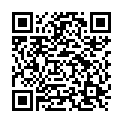|
|
|
| Module code: BSP-24.269 |
|
|
2S (2 hours per week, accumulated) |
|
6 |
| Semester: 6 or 7 |
| Duration: 2 semester |
| Mandatory course: no |
Language of instruction:
German |
Assessment:
Contribution in the form of journal entries and active participation and collaboration
[updated 23.09.2025]
|
BSP-24.269 (P322-0533) Social work and early childhood, Bachelor, ASPO 01.10.2019
, optional course
|
30 class hours (= 22.5 clock hours) over a 15-week period.
The total student study time is 180 hours (equivalent to 6 ECTS credits).
There are therefore 157.5 hours available for class preparation and follow-up work and exam preparation.
|
Recommended prerequisites (modules):
None.
|
Recommended as prerequisite for:
|
Module coordinator:
Studienleitung |
Lecturer: Studienleitung
[updated 26.11.2024]
|
Learning outcomes:
- Promotion of social engagement and democratic principles
- Exchange of experiences on a scientific basis
- Insight into the scientific monitoring and evaluation of the project
- Promotion of personal, professional, and social skills
- Presentation and communication technology training in an interdisciplinary team
- Teaching theory and linking theory and practice
- Teaching insight into learning processes of self-determined action
[updated 23.09.2025]
|
Module content:
“Balu und Du” supports children who, for various reasons, need extra care and attention. Each ‘Mogli’ (the primary school child in question) is assigned a “Balu” (a young adult volunteer, usually a student). Both meet regularly for a few hours each week over the course of a year to learn from each other and to promote and reflect on the childrens’ development. The seminar is designed to provide participants with an opportunity to reflect on the experiences they have gained during the program from a social science perspective. The accompanying events in seminar form are educational in nature and introduce participants to the casuistic method of systematic case processing. The “Balus” write a weekly journal. In it, they reflect on the progress of the relationship and the tasks. These reports enable self-reflection and scientific monitoring. Participants contribute to the seminar by writing their journal entries and actively collaborating on the implementation of the project (on a case-by-case basis).
[updated 23.09.2025]
|
Recommended or required reading:
Recommended literature will be announced at the beginning of the module.
[updated 23.09.2025]
|


